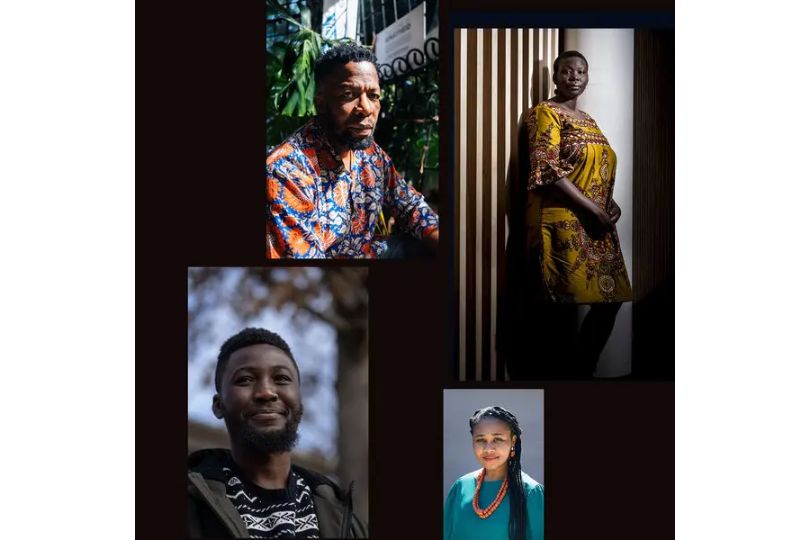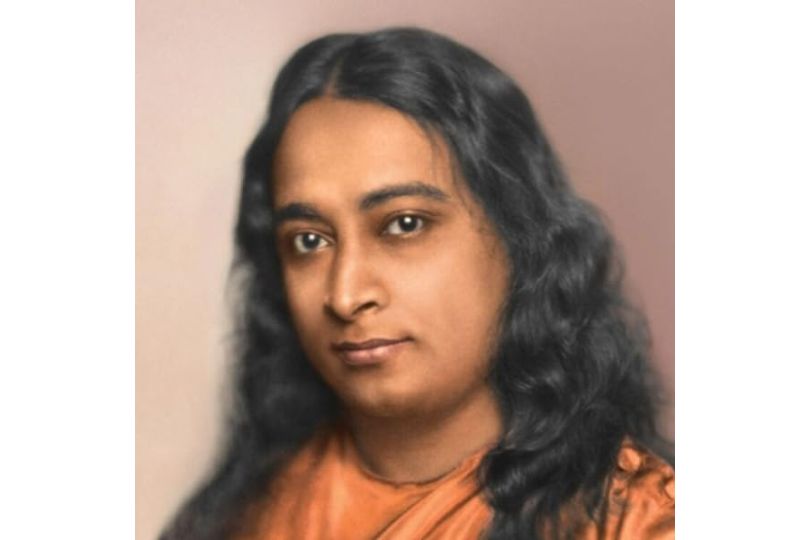'We're Going to Stand Up': Queer Literature Booms in Africa
Explore the vibrant world of African queer literature – breaking barriers, challenging norms, and celebrating diverse LGBTQ stories from talented authorson Feb 21, 2024

Even in countries where homophobia is widespread and same-sex partnerships are prohibited, authors are breaking barriers, finding an audience, and winning accolades.
As a queer youngster growing up in northern Nigeria, Arinze Ifeakandu frequently looked for literature that represented his feelings.
He went through his books at home and envisioned stronger ties between the same-sex characters. He browsed the bookstores in Kano, where he lived, looking for stories about L.G.B.T.Q. life. Later, during secret excursions to internet cafes, he discovered homosexual romance stories, although they frequently concentrated on lives far apart from his own, depicting closeted white jocks living in frigid towns.
Ifeakandu desired more. He began writing short stories about gay men who struggled with loneliness while also discovering lust and love in conservative, modern-day Nigeria.
"I have always taken my own desires, fears, and joys seriously," Ifeakandu, 29, explained. I knew I wanted to write about queer characters. That's the only way I'm going to appear on the page."
His stories resonated with both readers and critics. In 2017, he was a nominee for the Caine Prize for African Writing, and last year, his debut collection, "God's Children Are Little Broken Things," won the Dylan Thomas Prize for Young Writers.
Ifeakandu's work is part of a growing trend of publications by L.G.B.T.Q. writers across Africa.
Long overlooked in literature and public life, their stories are now taking centre stage in works that are pushing boundaries throughout the continent – and receiving fantastic reviews.
Big publishing houses in Europe and the United States are getting involved, but so are new publishers forming across the continent with the purpose of publishing African writers for a predominantly African audience.
Thabiso Mahlape, the founder of South Africa's Blackbird Books, has published Nakhane, a queer writer and artist, as well as "Exhale," a queer anthology. "So much more can be done," she explained.
The increasing momentum coincides with a larger cultural moment. More Africans are upfront about their sexual and gender identities.
Small Pride marches and film festivals are commemorating gay experiences, and some African religious leaders are stepping out in support of LGBTQ+ individuals.
Young people, who make up the majority of the continent's population, are turning to social media to discuss these works, and the big screen is introducing some of them to a wider readership: "Jambula Tree," a short story by Ugandan Monica Arac de Nyeko about a relationship between two girls, inspired "Rafiki," a Cannes-screened film.
The publications, which include fiction, nonfiction, and graphic novels, are also being released to combat widespread homophobia and anti-gay legislation in Africa.
Small Pride marches and film festivals are commemorating gay experiences, and some African religious leaders are stepping out in support of LGBTQ+ individuals.
Young people, who make up the majority of the continent's population, are turning to social media to discuss these works, and the big screen is introducing some of them to a wider readership: "Jambula Tree," a short story by Ugandan Monica Arac de Nyeko about a relationship between two girls, inspired "Rafiki," a Cannes-screened film.
The publications, which include fiction, nonfiction, and graphic novels, are also being released to combat widespread homophobia and anti-gay legislation in Africa.
Small Pride marches and film festivals are commemorating gay experiences, and some African religious leaders are stepping out in support of LGBTQ+ individuals.
Young people, who make up the majority of the continent's population, are turning to social media to discuss these works, and the big screen is introducing some of them to a wider readership: "Jambula Tree," a short story by Ugandan Monica Arac de Nyeko about a relationship between two girls, inspired "Rafiki," a Cannes-screened film.
The publications, which include fiction, nonfiction, and graphic novels, are also being released to combat widespread homophobia and anti-gay legislation in Africa.
The writers believe that by writing them, they would engage readers and counter common misconceptions about homosexuality as a Western import.
"These books are an invitation to change mindsets and start a dialogue," said Kevin Mwachiro, co-editor of "We've Been Here," a nonfiction anthology featuring LGBT Kenyans aged 50 and over.
"These books are saying, 'I am not a victim anymore,'" he went on to explain. "Gay people are saying, 'We don't want to be tolerated.'" "We want respect."
The momentum is fresh, although publications centred on queer stories have existed in Africa before.
Mohamed Choukri's 1972 novel "For Bread Alone" sparked outrage in Morocco for its portrayal of same-sex intimacy and drug usage.
The writers believe that by writing them, they would engage readers and counter common misconceptions about homosexuality as a Western import.
"These books are an invitation to change mindsets and start a dialogue," said Kevin Mwachiro, co-editor of "We've Been Here," a nonfiction anthology featuring LGBT Kenyans aged 50 and over.
"These books are saying, 'I am not a victim anymore,'" he went on to explain. "Gay people are saying, 'We don't want to be tolerated.'" "We want respect."
The momentum is fresh, although publications centred on queer stories have existed in Africa before.
Mohamed Choukri's 1972 novel "For Bread Alone" sparked outrage in Morocco for its portrayal of same-sex intimacy and drug usage.
The writers believe that by writing them, they would engage readers and counter common misconceptions about homosexuality as a Western import.
"These books are an invitation to change mindsets and start a dialogue," said Kevin Mwachiro, co-editor of "We've Been Here," a nonfiction anthology featuring LGBT Kenyans aged 50 and over.
"These books are saying, 'I am not a victim anymore,'" he went on to explain. "Gay people are saying, 'We don't want to be tolerated.'" "We want respect."
The momentum is fresh, although publications centred on queer stories have existed in Africa before.
Mohamed Choukri's 1972 novel "For Bread Alone" sparked outrage in Morocco for its portrayal of same-sex intimacy and drug usage.
Damon Galgut, the South African Booker Prize laureate, wrote the mesmerising 2010 novel "In A Strange Room," about an itinerant gay protagonist. Binyavanga Wainaina, a Kenyan author, made global headlines in 2014 when he published a "lost chapter" of his memoir, "I am a homosexual, mum."
However, literary scholars and publishers believe that the works being released currently are expanding Africa's literary canon. These stories – family sagas, thrillers, science fiction, and more — explore the complications of being queer in Africa and the diaspora.
Their writers question the silence surrounding queer culture in their own communities ("Love Offers No Safety," edited by Jude Dibia and Olumide F Makanjuola) and the hope and heartache of being trans or gender fluid (Akwaeke Emezi's "The Death of Vivek Oji"), intersex (Buki Papillon's "An Ordinary Wonder"), or lesbian (Trifonia Melibea Obono's "La Bastarda").
They investigate the connection of politics, religion, and sex ("You Have to Be Gay to Know God" by Siya Khumalo) and the ups and downs of a covert gay scene in a booming city ("No One Dies Yet" by Kobby Ben Ben).
The books also examine the unpleasant and difficult process of coming out to conservative parents (Uzodinma Iweala's "Speak No Evil") and imagine entire families with individuals on the L.G.B.T.Q. continuum ("The Butterfly Jungle" by Diriye Osman). "More Than Words," a 2023 illustrated book by Kenyan artistic collective The Nest, explores the daily lives of homosexual Africans through sci-fi and fan fiction.
Authors frequently employ works of fiction to create brave new worlds.
Chinelo Okparanta, a Nigerian American writer, focuses on the coming-of-age story of a young woman during Nigeria's Biafra Civil War in her 2015 novel "Under the Udala Trees." Ijeoma, the book's protagonist, meets Ndidi after finishing school. They attend covert lesbian parties in a church, discuss sexual pleasure, and even consider getting married.
Growing up, Okparanta recalls reading "So Long A Letter," a 1979 epistolary novel by Senegalese writer Mariama Bâ in which a widow writes to a longtime friend, and imagined "a world where there might be more to the women's relationship," she said. "I must have been hungry for an African novel with a story like that."
"Under the Udala Trees" concludes on a positive note: Ijeoma's mother embraces her, and she and Ndidi reconcile after her marriage to a man falls apart. Ndidi even envisions a Nigeria safe for gay people, which is a significant statement given that the book was published a year after Nigeria's former president passed a punishing anti-gay bill.
"There needs to be room for people to have hope," Okparanta remarked.
Nonfiction authors are also discussing their experiences with love and romance, navigating harsh workplaces, confronting rejection from their own kin, and discovering their "chosen" families. Even if they prioritise confession and catharsis, some of the publications try to provide a window into the lives of homosexual people on the continent.
"Sometimes people think we're just freaks having sex with each other, with no love, desire, or sensuality," said Chiké Frankie Edozien, whose novel "Lives of Great Men: Living and Loving as an African Gay Man" earned a Lambda Award.
"I wanted truth and honesty and vulnerability," he was quoted as saying.
Some LGBT African writers, like Edozien, who lives in Ghana's capital, Accra, with frequent visits to New York, have relocated or created professions in the West, using their writing to explore not only the societies they left behind, but also those they now live in.
Abdellah Taïa, a Moroccan-born writer working in Paris, is widely regarded as the first openly gay Arab writer and filmmaker. Taïa's nine novels explore Muslim, queer, Arab, and African identities. He has also directed two films: "Salvation Army," based on his eponymous novel, and "Never Stop Shouting," about his gay nephew.
Taïa's work has also addressed the rise of anti-migrant and anti-Muslim sentiments in France and Europe.
“If you are gay, and only thinking about gay liberation and only about that, it means you understand nothing about how the world is functioning,” Taïa remarked. "I am not totally free because other people are not free."
For many of these authors, publication has resulted in public recognition and respect. However, some have received harassment or even death threats.
Edozien thinks that the novels would encourage future generations to read "dignified and balanced" portrayals of LGBT Africans.
"Books are really powerful, books are really intimate," he remarked. And having these queer-focused stories in "libraries for decades to come is great, because the needle has been moved even when it doesn't feel like it."
Ifeakandu envisions a future in which queer-centered African stories are no longer the exception to the rule.
"I didn't choose the country I was born into, just as much as I didn't choose my sexuality," she remarked. "Grudgingly, hopefully, we're going to stand up."



.jpg)






.jpg)

.jpg)
.jpg)

.jpg)
.jpg)
.jpg)










Sorry! No comment found for this post.